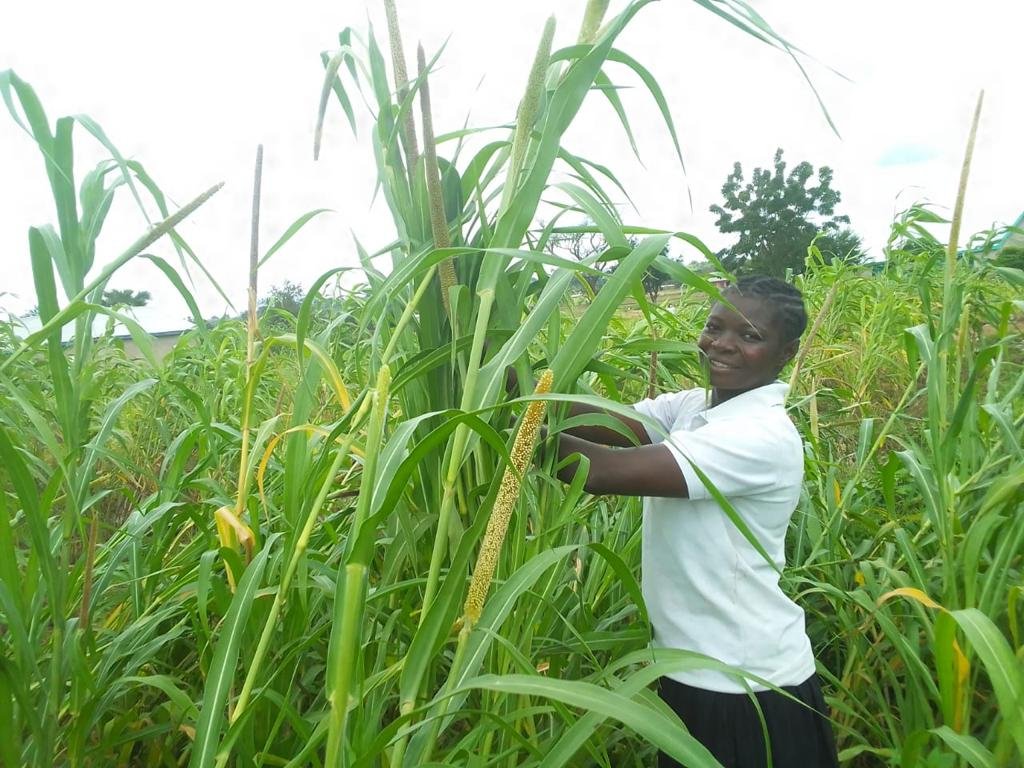
Farmer Leads
Our goal is to support and strengthen farmer and community seed systems through the leadership of farmers, we call farmer leads. Each farmer lead represents their community as part of the Beela and Trax Ghana collaboration to carry out project activities. The farmer lead represents the voice and well-being of their community regarding their community’s seed security and food sovereignty. All seed-related activities, community meetings, and engagements are done with the farmer lead.
Each farmer lead practices agroecology, and understands the role and importance of agroecology in saving quality seeds. Our farmer leads are experts in their seed systems, agricultural systems, and their seed security. Our farmer leads know and have a clearer picture of the seed security situation in their communities. Our farmer leads carry in-depth local knowledge and experience from their years of practice in agroecology on their farms/gardens in their community, contribute to biodiversity, and engage in local indigenous seed-saving methods. Farmer leads know best how to address challenges within the seed system in their community.
The Beginning…
We started with two farmer leads and Trax Ghana’s field coordinator (far left), Solomon Abeinge. The first two farmer leads, Joyce Asekulga (in the middle) Kambusigo community in Bonge-Beo, and Fuseini Bugbon (far right) from the Gundoug community in the Nabdam district. Solomon, Joyce, and Fuseini attended the West African Peasant Farmers Seed Fair.
Trax Ghana Field Coordinator, Solomon Abeigne used a criterion to select the farmer leads to ensure that they aligned with the mission and vision of keeping local seeds in the hands of farmers and their communities. The criteria examined farmers’ agricultural systems to ensure that the farmers were practicing agroecology, producing organic seeds, and were involved in the practice of saving seeds.
Testing Crops
After the Benin Seed Fair, we expanded to include three more farmer leads. These farmers were Ernestina from the Pelungu community, Comfort from the Yakoti community, and Patrick from Sekoti, all from the Nabdam district.
The seeds brought to the Upper East Region by farmer leads Joyce and Fuseini from the seed fair were crop varieties that farmer leads identified as important to address some of the key seed and food challenges they were facing in their community. Such as millet varieties from Niger, sorghum varieties from Senegal, maize from Zimbabwe, and key vegetable seeds similar to the local vegetables they grow in their communities. Seeds were shared with all five farmer leads who planted them and shared the seeds widely in their community.
Beela/Trax - TEN FARMER LEADS
With funding support from The 11th Hour Project and technical support from SeedChange, the Beela Project in collaboration with Trax Ghana has on board ten farmers leads, representing ten communities across the Upper East and North East region. The ten communities are spread across the two regions, the North East and the Upper East Region. These ten farmer leads include the existing five farmer leads mentioned above. The role of the farmer leads is to take leadership on the project activities with support from the field coordinator, technical support, and the MEL Officer. The farmer leads will lead the implementation of the Seed Security Assessment and Action Plan in each of their communities, host seed exchanges in their communities, organize and host the Bolgatanga Seed Fair as well as lead agroecological learning exchanges in their communities and among themselves.
Five of the ten farmer leads are women, gender equity is crucial in addressing farmer and community seed systems. Women play an important role in seed-related activities, from seed selection, treatment of seeds, storage methods, and the overall preservation of local seed systems. Culturally, women are also responsible for household food and nutrition, as they are responsible for planting local vegetables around the house. Women bring years of experience and expertise in observing changes to the climate, ecosystems, and biodiversity, and have made several changes over the years to their food and seed systems.



